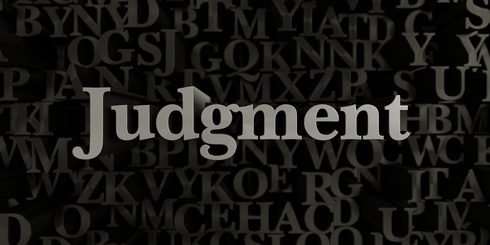 Applying Campbell-Ewald, the U.S. Court of Appeals for the Sixth Circuit revived a consumer plaintiff’s ability to proceed with a putative class action, holding that an unaccepted offer of settlement or judgment generally does not moot a case, even if the offer would fully satisfy the plaintiff’s demands for relief.
Applying Campbell-Ewald, the U.S. Court of Appeals for the Sixth Circuit revived a consumer plaintiff’s ability to proceed with a putative class action, holding that an unaccepted offer of settlement or judgment generally does not moot a case, even if the offer would fully satisfy the plaintiff’s demands for relief.
A copy of the opinion in Conway v. Portfolio Recovery Associates, LLC is available at: Link to Opinion.
A consumer filed a putative class action against a debt collector under the federal Fair Debt Collection Practices Act (FDCPA) and survived the defendant debt collector’s motion to dismiss. The debt collector subsequently offered the plaintiff consumer judgment in his favor, but the consumer decided against the offer and the offer expired.
The debt collector moved to dismiss once again on the basis that it had offered the consumer all the relief he sought, and that consequently there was no longer a live case or controversy.
The district court, applying then binding precedent of O’Brien v. Donnelly Enters., 575 F.3d 567 (6th Cir. 2009), dismissed the case for lack of subject matter jurisdiction and entered judgment in the consumer’s favor, over the consumer’s objections. The district court also dismissed the consumer’s class certification motion as moot. The consumer appealed.
The Sixth Circuit began its analysis by addressing the applicability of the Supreme Court of the United States’ ruling in Campbell-Ewald Co. v. Gomez, 136 S. Ct. 663 (2016), a case decided after the district court entered the judgment at issue. As you may recall, in Campbell-Ewald, the Supreme Court held that an unaccepted offer of settlement or judgment generally does not moot a case, even if the offer would fully satisfy the plaintiff’s demands for relief.
The Court of Appeals rejected the debt collector’s argument that the district court’s entry of an enforceable final judgment in favor of the consumer granting him all the relief he wanted distinguished the present matter from Campbell-Ewald. In so ruling, the Sixth Circuit noted that the district court stated it had felt compelled to enter such an order as a result of O’Brien. Consequently, the Sixth Circuit held that under the Supreme Court’s ruling in Campbell-Ewald, there was an Article III controversy between the consumer and the debt collector.
Next, the Sixth Circuit examined the debt collector’s argument that the Court lacked jurisdiction to review the appeal because the district court’s final judgment for the consumer had already given him all the relief he sought. The debt collector argued that the debtor had no stake in the litigation as a result of the judgment entered by the district court and that stake was required to retain jurisdiction for an appeal.
The Court of Appeals rejected the debt collector’s argument, ruling that an erroneously entered judgment does not deprive a plaintiff of his stake in the underlying litigation. In other words, the Sixth Circuit held, an appellate court has jurisdiction to correct an erroneous judgment by a trial court, including under the circumstances here in light of Campbell-Ewald.
Last, the Court found it unnecessary to address the merits of the consumer’s motion for class certification. The Sixth Circuit reasoned that if it were erroneous to enter a judgment, then it was also erroneous to dismiss the consumer’s motion for class certification as moot. Consequently, the Court held, the class certification motion was best decided through litigation before the district court.
Thus, the Sixth Circuit vacated the trial court’s judgment dismissing for lack of jurisdiction and entering a money judgment, and remanded the case.


